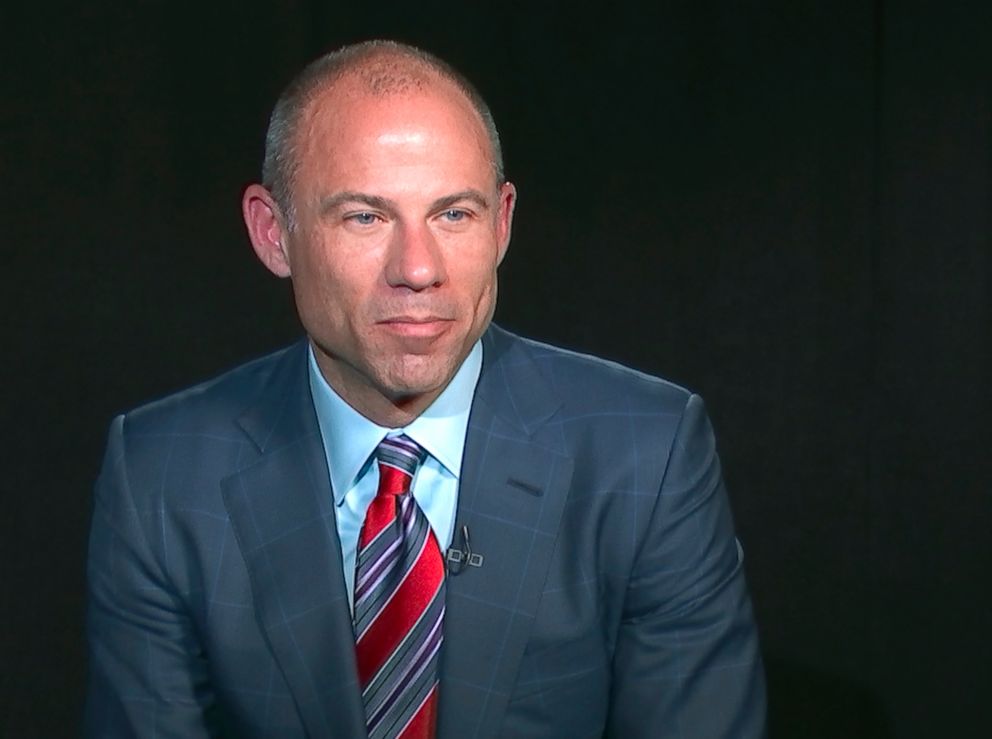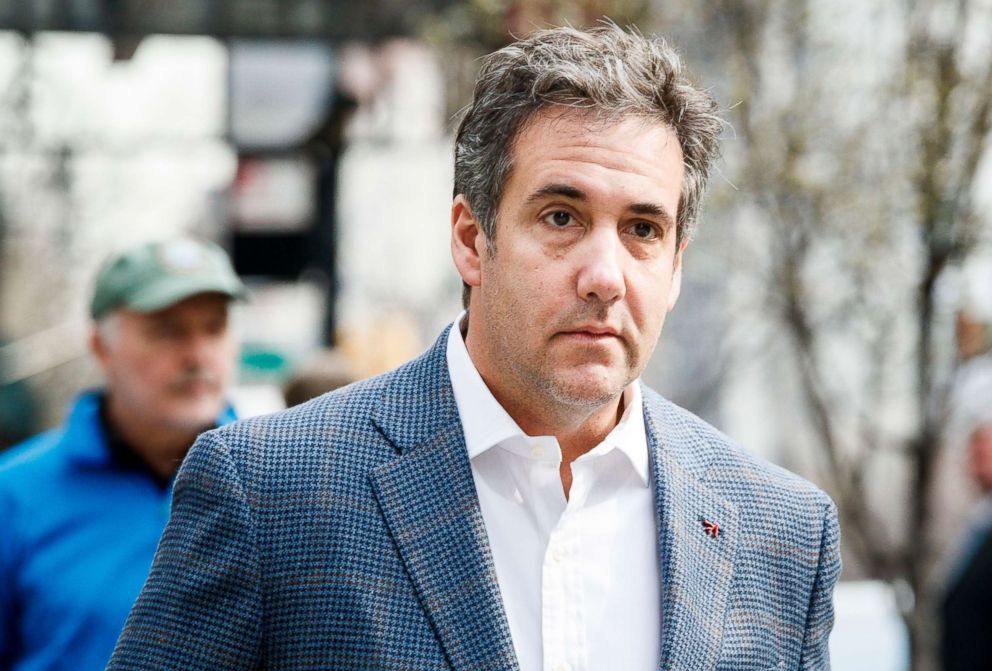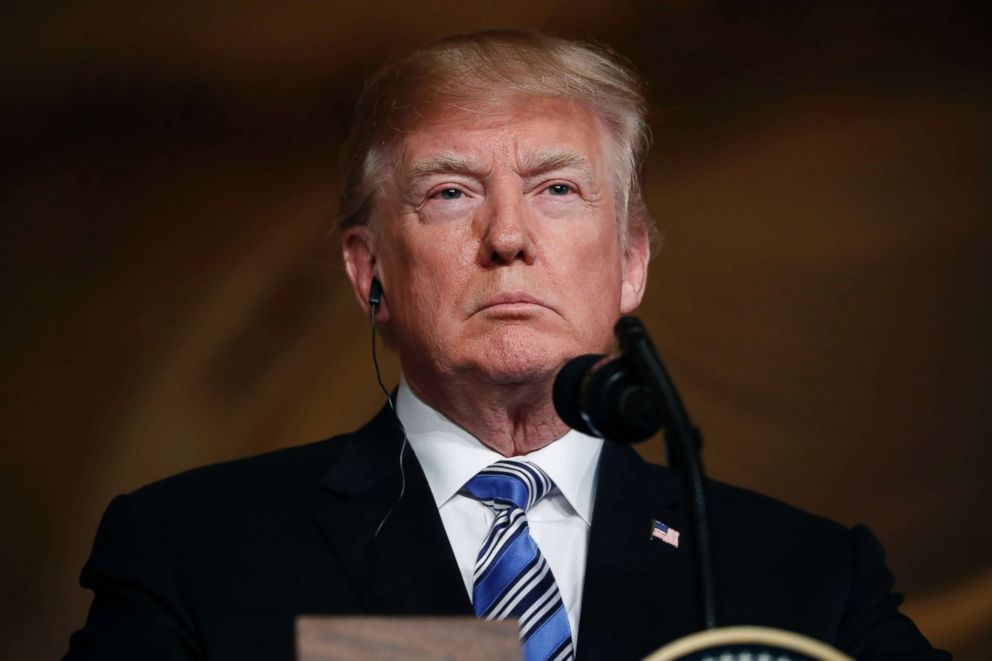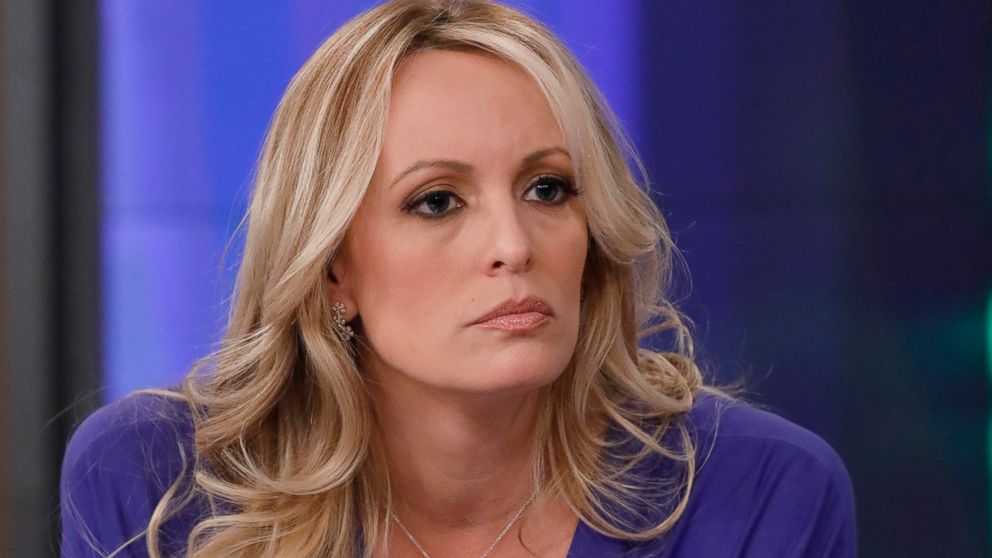Fight looms over Trump, Cohen request to delay Stormy Daniels case
The attorney for adult-film star Stormy Daniels is vowing to “vehemently argue” against an attempt by President Donald Trump and his personal attorney Michael Cohen to delay her lawsuit challenging the validity of a non-disclosure agreement she signed days before the 2016 presidential election.
“The American people deserve the truth as quickly as possible,” Daniels’ lawyer Michael Avenatti wrote Thursday on Twitter.
U.S. District Court Judge S. James Otero, who is overseeing Daniels’ lawsuit in federal court, has scheduled a hearing for Friday morning in Los Angeles on Trump and Cohen’s request to put the case on hold for at least 90 days. That request followed last week’s FBI raids on Cohen’s New York office and residences, which raised the specter of possible criminal charges against the President’s longtime lawyer and confidant.
If Judge Otero were to grant the defendants’ request, Daniels’ lawsuit – and Avenatti’s efforts to depose Cohen and Trump under oath - could be frozen for months while the criminal investigation is ongoing.
“The court in the civil case has the discretion to order a stay – which is basically calling a ‘time-out’ in the case,” said Darren Kavinoky, a Los Angeles criminal defense attorney and legal analyst. “This is done with some regularity.”

Federal agents conducting the April 9 searches related to Cohen’s business dealings seized about ten boxes of documents, plus electronic files on multiple phones and electronic devices, according to court records. Among the items reportedly sought were records associated with Cohen’s $130,000 payment to Daniels, which was routed through a Delaware shell company Cohen set up to facilitate the transaction.
The Wall Street Journal first reported the previously secret agreement in January, and government watchdog groups have since urged the Justice Department and the Federal Election Commission to investigate, alleging possible violations of campaign finance laws. Cohen has not been charged with any crime and contends that the payment to Daniels was legal.
The raids came four days after Trump made his first public comments about Daniels’ allegations, denying any knowledge of the payment and referring other questions to Cohen.
"You'll have to ask Michael Cohen," Trump told reporters aboard Air Force One earlier this month. "Michael is my attorney. You'll have to ask Michael."
Through his representatives, the president has repeatedly denied Daniels’ allegations of a sexual encounter with Trump during a Lake Tahoe golf tournament in 2006.

Lawyers for Trump and Cohen argued in court filings that there is “substantial overlap” between Daniels’ lawsuit and the criminal investigation and contended that Cohen’s Fifth Amendment rights against self-incrimination could be implicated if the civil case is allowed to proceed.
“Mr. Cohen is a key witness in this action and Defendants’ most knowledgeable person with respect to the facts,” asserts his attorney Brent Blakely, noting that Cohen negotiated the settlement agreement with Daniels’ previous lawyer and arranged for the payment.
“Thus, if the case moves forward,” Blakely writes, “Defendants’ key witness would have to choose between exercising his Fifth Amendment rights, and testifying on Defendants’ behalf.”
Avenatti countered in court filings that “Cohen has failed to meet his evidentiary burden to show his testimony would be self-incriminating” and argues that Cohen has waived his Fifth Amendment rights because he has “already freely and openly discussed this matter in the public.”
That could pose a problem for Cohen, Kavinoky said, because “once someone has let the proverbial cat out of the bag, it’s far tougher to assert their Fifth Amendment right to silence.”

The hearing Friday will be the first in a case that has dominated headlines for weeks, ever since Daniels filed suit in California seeking to invalidate the deal. Her interview with CBS News’ 60 Minutes in late March drew more than 22 million viewers.
In court filings, attorneys for Cohen have asserted that Daniels could be on the hook for at least $20 million in damages for her alleged breaches of the nondisclosure agreement. In her lawsuit, Daniels claimed that the hush agreement is invalid because Trump — under the alias “David Dennison” — never signed the contract.
The judge’s decision will be “a close call,” Stanley Goldman, a professor of criminal procedure at Loyola Law School, told ABC News.
“Civil cases get deferred all the time if there’s a criminal case,” Goldman said. “A lot of civil cases are tried when a criminal case could have been filed, but wasn’t. If I were the judge I would let the proceedings go forward for the moment, but demand everyone come back if circumstances change, like if there’s an indictment.”
Dana Cole, a Los Angeles criminal defense attorney, told ABC News he thinks Cohen and Trump have a good shot at winning at least a brief delay “until the dust settles and the parties can determine whether the criminal investigation directly relates to the civil case.”
“The Fifth Amendment privilege not to testify is paramount, it is one of the key civil rights we have,” Cole said. He believes the potential criminal exposure Cohen faces will persuade the judge “to let things cool down and get more clarity on what the criminal investigation is focused on.”




